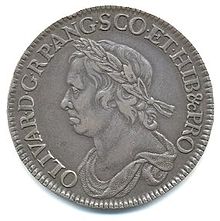When choosing something cool, yet personal to buy, customers make their choice based on differences. Differences that are worth paying for, that is. However, differences will have to be within a common trend or fashion.
In today’s consumer electronics market, fashion and trends mean smartphones. It is certainly not enough to have a standard mobile phone to talk or text, which is at reach for almost anybody today. Smartphones are wanted.
So the big question for a smartphone potential customer is which one to buy. The choice, again, will be based on difference between the available alternatives, and the value each difference represents to the user.
In a simplified analysis, we could say that there are two main differentiators for these products: Price/cost and features/capabilities/usability.
If we take a look to the main players in the smartphone market, from an operating system perspective, we see Android with its different flavors or versions, IOS4 by Apple, Symbian by Nokia and Blackberry by RIMM.
If we dig a bit through them, we come to the conclusion that there are only two clear leaders, one for each of the differentiation groups.
On one side, we got Android, an open operating system with the enormous advantage of cost, as it is free. This platform provides many functionalities RIMM or Nokia lack, a powerful app base with plenty of developers backing it, and a broad choice of handset manufacturers who will compete against themselves within this platform to make additional differentiation, and, therefore, reinforcing a trend lowering prices.
On the other side, we have Apple with IOS4 as undisputed leader for having set trends in the overall market, coming form the super-successful iPod success, and backed by all the brand reputation they have. Leaders in the app development and selling environments, with iTunes model, and the solid reputation for quality and usability they have proven. In fact, they represent the model others are following, from a conceptual perspective at least.
Despite all the comparisons these two are starring in the news and in the media, we do not really see a major war between them beyond their own natural spaces, given the different strategies after each of them.
Apple leads in innovation, quality, user experience and time to market, and is led my a single company that provides both hardware and software.
Androids lead in price and cost, keeping a reasonable pace from a technology and usability point of view with Apple. Now, their dependence on the different handset manufacturers may lead them to unnecessary conflict between them and need to further differentiate between themselves, potentially at the expense of sacrificing features, capability, quality, usability or reliability; as well, these eventual conflicts would have additional complication by needing to keep an eye on potential newcomers (open free operating system, remember).
So after some consolidation of the market, we believe there will be a natural (not necessarily sought though) od positioning Android as sort of “the affordable iPhone”. or “the cheap iPhone”, similarly to to what local and small unknown brands tried to do when selling their own “clone” PCs (“IBM compatible”, remember?) years ago.
“Affordable” or “cheap” alternatives to quality leaders are always well accepted by the market, and volumes come quickly up for them. Not everybody may afford buying the quality and technology leader’s products. Every car owner would like to drive BMW or Mercedes, yet these are not volume sales leaders, are they? And every man in the world would like to have an Armani suit for each day and carry a Louis Vuitton suitcase when traveling. But Toyota, Volkswagen and Renault might do with good enough cars, and it does not really matter for many people to buy their suits at Sears and travel with an unknown brand case.
The proof is the massive growth by Androids in the latest reported figures, which have not harmed Apple at all, as much as a big sales increase for Toyota or Volkswagen won’t worry a Mercedes dealer much, not to talk a Bentley, or a Ferrari one. In fact, what Androids are doing by an “affordable” offering is basically making the market grow by addressing population segments Apple’s would not reach even if left alone. Apple is probably less interested in additional volumes beyond a certain limit if they come at the expense of profits. At the end of the day, Apple is there to make money too. Especially after their near-to-death arch-famous experience in the 1990s. Truly, Apple’s sitting today on a war chest of about $51 billion, according to lots of online reports, which is twice as much of what Dell is worth at this moment in NYSE, as a reference. Apple will probably sell always less units than Android, but with much healthier financials, as their prices will be higher, and profits will come both from hardware and software. Android will make greater unit volumes, though average selling price and profits will be lower by unit, mainly moving to the handset vendors, and indirectly through ad selling to Google.
The second slice of the market that Androids are eating, is coming, therefore, from Blackberry and Symbian. A legacy niche seems to be what the future looks like for the Finnish guys, who’d better ask Santa Claus for the upcoming Christmas season for a time machine that brings the market back to several years ago, when they were the king of the hill, while the Canadian RIMM still sits on a volume leadership position (which is quickly being eroded) thanks to the cost of change that many businesses have to remove them (smartphone features at Blackberry were initially addresses to businesses more than to consumers, and very successfully, by the way). Still, their technical restrictions and limited functionality do not allow a bright future out of their niches, particularly when it is the consumer market who is driving more trends and techno than professional users.
The proof here is that the expectations for growth and revenue for these guys are more oriented to less developed markets, like Latin America or India.
For the moment, both Apple and Android seem to be able to enjoy their (different) success stories, and yet compatible, it seems. Fast growth, however, will side better with the Androids, whose armies will be eating a important portions of the market period after period… Vegetarians they seem, these Androids, as they are slowly eating the Blackberries. Vegetarians, but certainly not Apple eaters.

Technorati Tags:
nokia,
rimm,
apple,
steve jobs,
smartphone,
google,
IOS4,
symbian,
android,
blackberry,
market growth






 So the news is not that much about bathroom-scale tsunamis, but about when HP will finally come up with something tangible in the tablet arena based on WebOS.
So the news is not that much about bathroom-scale tsunamis, but about when HP will finally come up with something tangible in the tablet arena based on WebOS. 











 What else? A touch of class indeed… Smiling, he sipped what was left from his coffee, and confirmed his caps order with a gentle touch on his iPhone while a long queue of people looking and behaving like androids was forming at different Starbucks shops all over the country, where customers did not find any more seats available, conversations were getting louder, and nervous waiters starting yelling customer names instead of politely addressing them with their orders.
What else? A touch of class indeed… Smiling, he sipped what was left from his coffee, and confirmed his caps order with a gentle touch on his iPhone while a long queue of people looking and behaving like androids was forming at different Starbucks shops all over the country, where customers did not find any more seats available, conversations were getting louder, and nervous waiters starting yelling customer names instead of politely addressing them with their orders.


